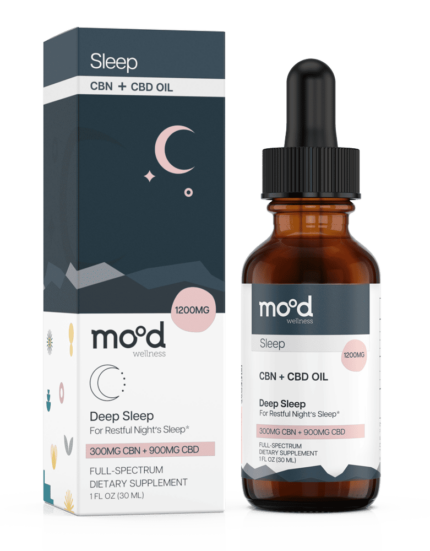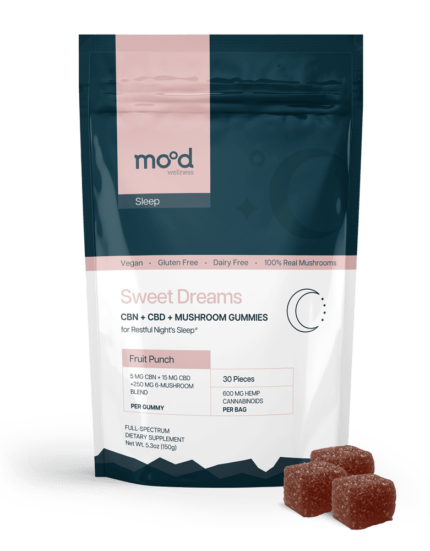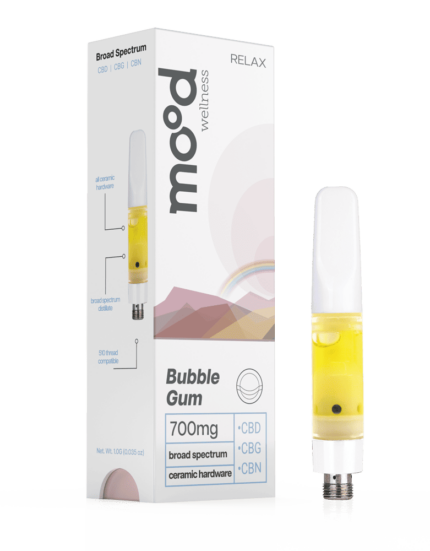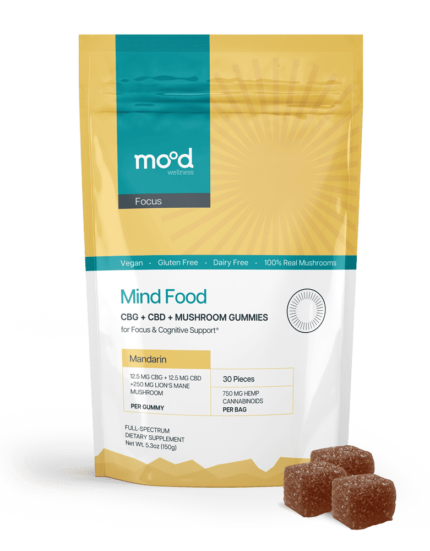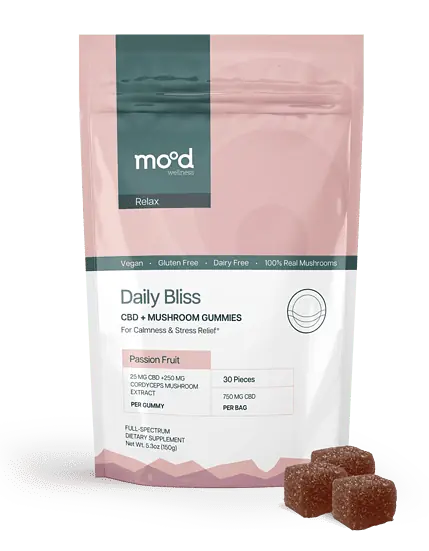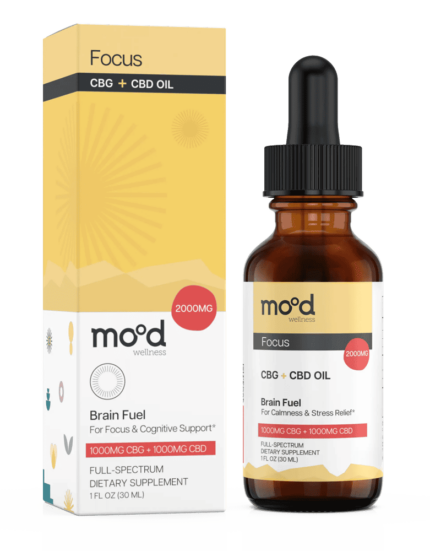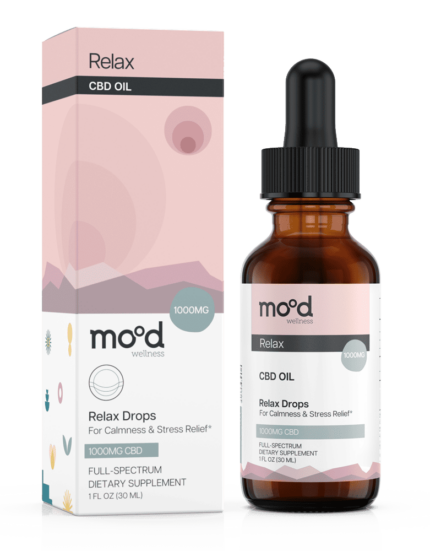CBN, or Cannabinol, is one of the many cannabinoids found in the cannabis plant.This non-intoxicating compound is gaining attention in the wellness industry for its potential uses.
This comprehensive guide will delve into what CBN is, its potential uses, benefits, risks, and what current research says about it. As we navigate through the complexities of this intriguing compound, we aim to provide you with a well-rounded understanding of Cannabinol and its place in the world of wellness.
What is CBN?
CBN, or Cannabinol, is a cannabinoid with a unique origin and distinct qualities that set it apart from other cannabinoids like CBD and THC.
The primary production of Cannabinol is a result of the degradation of THC, the psychoactive compound in cannabis.
This degradation process is initiated when THC is exposed to heat and oxygen, causing it to gradually break down and oxidize into Cannabinol over time.
Due to this natural aging process, Cannabinol is typically found in higher concentrations in older cannabis, especially in cannabis that has been exposed to air for an extended period or stored improperly.
While this might discourage some individuals seeking the fresh potency of THC, others specifically seek out mature cannabis to experience the unique effects of CBN.
One of the most notable characteristics of Cannabinol is its lack of intoxicating effects, setting it apart from THC. CBN does not produce the “high” commonly associated with cannabis use. This is attributed to Cannabinol’s lower affinity for the CB1 receptor, the primary target of THC in the brain responsible for its psychoactive effects. Instead, Cannabinol has a higher affinity for the CB2 receptor, predominantly found in the immune system and associated with a variety of potential health benefits.
The Science Behind CBN
CBN, like other cannabinoids, interacts with the body’s endocannabinoid system (ECS). The ECS is a complex cell-signaling system that plays a role in regulating a range of functions and processes, including sleep, mood, appetite, memory, reproduction, and fertility. The ECS is composed of endocannabinoids, receptors, and enzymes.
Endocannabinoids are molecules made by your body that are similar to cannabinoids. Receptors are found throughout your body, and endocannabinoids bind to them to signal that the ECS needs to take action. There are two main endocannabinoid receptors:
CB1 receptors, which are mostly found in the central nervous system, and CB2 receptors, which are mostly found in your peripheral nervous system, especially immune cells.
Enzymes are responsible for breaking down endocannabinoids once they’ve carried out their function. Cannabinol binds to these receptors, influencing the ECS and helping it maintain a healthy state of balance, known as homeostasis.
How Does CBN Make You Feel?
While there is no “high” associated with a dose of CBN, many people do experience a state of relaxation and peace of mind.
In slightly higher doses, Cannabinol might make you feel tired and relaxed, which is why it’s often used as a sleep aid. It’s important to note that the effects of Cannabinol can vary greatly depending on the individual, the dose, and the method of consumption.
As with any new supplement, it’s recommended to start with a low dose and gradually increase until you find the right dose for you. Always consult with a healthcare provider before starting any new supplement regimen.
Potential Uses and Benefits of Cannabinol
CBN has been studied for its potential uses in several areas. However, it’s important to note that more research is needed to fully understand its effects and potential benefits.
Here are some areas where Cannabinol might have potential benefits:
- Sleep Aid: One of the most notable potential uses of CBN is its use as a sleep aid. Many hemp and cannabis users report that Cannabinol could potentially be used to promote restful sleep. However, more research is needed to fully understand how Cannabinol influences sleep. It’s also important to note that the effects of Cannabinol can vary from person to person, so what works for one person may not work for another.
- Pain Relief: CBN is believed to have potential pain-relieving effects. It may help reduce sensations of pain by influencing the activity of neurons that are responsible for pain signaling. This could make CBN a potential option for managing chronic pain conditions, although more research is needed in this area.
- Anti-Inflammatory: Cannabinol may also act as an anti-inflammatory agent, potentially reducing swelling and inflammation. This could make it useful for managing conditions associated with inflammation. However, as with the other potential uses of Cannabinol, more research is needed to fully understand its effects.
Potential Side Effects of CBN
As with any substance, the use of Cannabinol may come with potential side effects.
It’s important to note that research into cannabinoids is still in its early stages, and our understanding of its safety profile is not yet complete. However, based on current knowledge, here are some potential side effects that users should be aware of:
- Sedation: One of the most commonly reported effects of CBN is sedation or drowsiness. This is why Cannabinol is often touted as a potential sleep aid. However, this effect can be a drawback for those who need to remain alert and focused. It’s generally recommended to avoid operating heavy machinery or driving after consuming Cannabinol products.
- Appetite Stimulation: Some research suggests that Cannabinol might stimulate appetite, similar to THC. This could be a benefit for those struggling with appetite loss, but a potential drawback for those trying to control their food intake.
- Drug Interactions: As with other cannabinoids, there’s a potential for CBN to interact with certain medications. This could alter the way the drugs work, potentially leading to unwanted side effects. It’s always recommended to consult with a healthcare provider before starting any new supplement, especially if you’re currently taking other medications.
While these potential side effects may seem concerning, it’s important to remember that everyone’s body reacts differently to cannabinoids.
Some people may experience these side effects, while others may not. As with any new supplement, it’s important to start with a low dose and monitor your body’s response.
CBD Vs CBN – What are the Differences?
While CBD and CBN are both cannabinoids derived from the cannabis plant, they have distinct differences. CBD, or cannabidiol, is the second most abundant cannabinoid in the cannabis plant and is known for its potential therapeutic benefits without the psychoactive effects associated with THC.
On the other hand, Cannabinol is a mildly psychoactive cannabinoid that is produced as THC ages. Additionally, CBD and Cannabinol interact differently with the receptors in the body. CBD does not directly bind to the CB1 and CB2 receptors like THC does, but instead, it is thought to work by preventing endocannabinoids from being broken down, allowing them to have more of an effect on your body. CBN, however, has a higher affinity for the CB2 receptor.
Here’s a comparison table to highlight the differences:
| CBD | CBN |
| Non-psychoactive | Mildly psychoactive |
| More extensively researched | Less researched |
| Found in high amounts in the cannabis plant | Found in higher amounts in aged cannabis |
| Potential benefits include stress relief, seizure reduction, and mood management. | Potential benefits include sleep aid and potential pain relief. |
| Does not directly bind to CB1 and CB2 receptors, but influences endocannabinoids | Has a higher affinity for the CB2 receptor |
How to use CBN?
Cannabinol (CBN) can be consumed in several different ways, depending on the product and the user’s preferences. Here are a few common methods:
- Oils: CBN Oils are liquid extracts that can be taken orally. They are typically placed under the tongue, where they can be quickly absorbed into the bloodstream.
- Edibles: Cannabinol can also be infused into edible products like gummies, chocolates, or capsules. These products are ingested and must be digested before the CBN can enter the bloodstream, which can take longer but also provides a longer-lasting effect.
- Topicals: CBN can be found in topical products like creams, lotions, and balms. These products are applied directly to the skin, where the Cannabinol can be absorbed locally to target specific areas.
- Vapes: CBN can be vaped or smoked, providing a fast-acting method of consumption. However, this method also carries potential risks associated with inhaling vapor or smoke.
It’s important to start with a low dose and gradually increase until you find the right dose for you. Always consult with a healthcare provider before starting any new supplement regimen.
CBN Vs. Other Cannabinoids
CBN is just one of over 100 cannabinoids found in the cannabis plant, each with its own unique properties and potential benefits.
Here’s how Cannabinol compares to a few other well-known cannabinoids:
- CBN vs. THC: THC is the primary psychoactive compound in cannabis, responsible for the “high” associated with its use. CBN, on the other hand, is non-intoxicating and is known for its potential sedative effects.
- CBD vs. CBN: CBD is a non-psychoactive cannabinoid known for its potential therapeutic benefits, including anti-inflammatory and anti-anxiety effects. Cannabinol shares some of these potential benefits but is particularly noted for its potential as a sleep aid.
- CBG vs. CBN: CBG, or cannabigerol, is another non-intoxicating cannabinoid. It’s often referred to as the “mother of all cannabinoids” because it’s the precursor from which other cannabinoids are synthesized. CBG has potential anti-inflammatory, neuroprotective, and antibacterial properties.
The Future of Research
While we’ve learned a lot about CBN in recent years, there’s still much to discover.
Current research is exploring CBN’s potential benefits in greater depth, and new potential uses are being investigated. For example, some studies are looking at its potential as an antibacterial agent, particularly against antibiotic-resistant bacteria. Other research is exploring its potential anti-inflammatory and neuroprotective properties.
As our understanding of Cannabinol and other cannabinoids continues to grow, we can expect to see more CBN-focused products on the market, providing consumers with even more options for incorporating this intriguing compound into their wellness routines.
Where to Buy CBN Products
Mood Wellness offers a range of high-quality CBN products, all sourced from organic, non-GMO hemp farms in Colorado. We use a CO2 extraction process to ensure a pure and potent product, and all their products are manufactured in an FDA-registered, cGMP-certified facility and lab-tested for quality and safety. We are committed to complete transparency and will always let you know exactly what’s in their products.
Explore our Cannabinol products:
Conclusion
CBN, or Cannabinol, is a cannabinoid that has been gaining attention in the wellness industry due to its unique properties and potential therapeutic benefits. Originating from the natural degradation of THC, CBN offers a different profile of effects and benefits, distinguishing itself from other well-known cannabinoids like CBD and THC.
From its potential as a sleep aid to its possible anti-inflammatory and pain-relieving properties, Cannabinol presents a promising avenue for future research and application in the wellness and therapeutic sectors. However, it’s important to remember that our understanding of Cannabinol is still evolving, and more research is needed to fully elucidate its potential benefits and risks.
FAQ's
CBN, or Cannabinol, is a cannabinoid that is primarily produced through the degradation of THC, the psychoactive compound in cannabis. Unlike THC, CBN does not produce a “high” and has a higher affinity for the CB2 receptor in the body.
CBN is produced when THC is exposed to heat and oxygen. This process causes THC to degrade and oxidize into CBN over time. As a result, CBN is typically found in higher concentrations in older cannabis.
CBD and CBN are both cannabinoids derived from the cannabis plant, but they have distinct differences. CBD is known for its potential therapeutic benefits without the psychoactive effects associated with THC. On the other hand, CBN is a mildly psychoactive cannabinoid that is produced as THC ages. Additionally, CBD and CBN interact differently with the receptors in the body.
There is evidence that the use of CBN could inadvertently lead to failed drug tests. Even if you have virtually undetectable amounts of THC in your system, the presence of CBN could potentially skew your levels higher, depending on the sensitivity of the drug test.
Discover Mood Wellness’ range of CBN-infused products, perfect for improving sleep and promoting relaxation.
From oils to gummies and vape carts, find the perfect fit for you.
